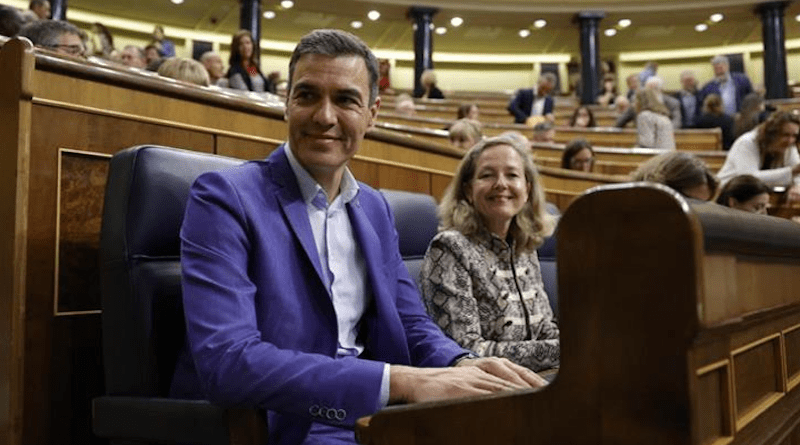PM Sánchez Says Incomes Of Spain’s Middle And Working Classes Must Be Protected
Spain’s Prime Minister Pedro Sánchez said in the Lower House of Parliament that the government will transfer 30 billion euros in public resources until December 31 to defend the “social majority”. Furthermore, he assured that the European Commission’s proposals on energy matters validate the policies of Spain’s Executive.
In the Executive Control Session held in Congress, Pedro Sánchez maintained that the Government will continue, as it has “throughout the legislature”, to be concerned about the middle and working classes and the most vulnerable groups. As examples of this policy, the president cited the increase in the Minimum Basic Salary, the increase in pensions in line with inflation, direct aid to the most affected sectors and selective tax cuts.
In light of the consequences of the war in Ukraine, it is necessary to “protect the incomes of the middle and working classes”, added Sánchez in his reply to Concepción Gamarra, a member of the People’s Parliamentary Group. The head of the Executive has announced the public resources that the Government is going to allocate until 31 December of this year at 30 billion euros.
Sánchez has also advocated a fair distribution of the economic and social effects of the war, with initiatives such as windfall taxes on large financial institutions and energy corporations.
“Money has a lot of power, but the power in a democracy is the power of the social majority”, said the president, who affirmed that the Executive will place “all public institutions and all public resources at the service of the majority”.
Consistency in the face of the energy and climate crises
Sánchez stressed the importance of acting consistently in the face of two major current crises: the energy crisis “resulting from Putin’s war in Ukraine” and the climate emergency.
Following the intervention of Santiago Abascal, a member of the Vox parliamentary group, Pedro Sánchez replied that the Government “shares the concern of the Chamber” about the way in which the energy crisis is being transferred to the shopping basket and the homes of the middle and working classes. “And we are offering remedies and proposals, not only in Spain but also in Europe,” he said.
These initiatives, he said, must be consistent with the fight against the consequences of climate change, from desertification and reduced river flows to worsening air quality. In this sense, the president has advocated for Spain’s “indigenous energy”, “which is renewable energy”, as opposed to energy imported from other countries.
Credibility of energy policy
In his reply to Gabriel Rufián, a member of the Republican Parliamentary Group, the head of the Executive highlighted the work that the Government is carrying out in the European Union to alleviate the rise in energy prices.
The plan presented by the European Commission, Sánchez remarked, “validates many of the proposals that Spain has been advocating” in Brussels for the last year. These include the reform and intervention in the electricity market, the creation of taxes on oil and gas companies, the reduction of revenues from renewables and the cap on gas imports from Russia.
“Therefore, I believe that if there is one thing we can conclude, with all humility, with all the difficulty that lies ahead of us, it is that, in energy matters, there is no more credible government in Europe right now than the Government of Spain,” he said.

